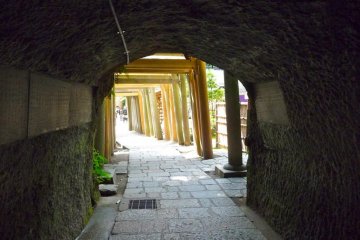
Zeniarai Benzaiten Shrine, Kamakura
Adeline OngThis is one of the famous Shinto shrines and location of a miraculous spring in Kamakura. Washing money in the spring is supposed to bless your money and multiply it.
Zeniarai Benzaiten Ugafuku Shrine, popularly known simply as Zeniarai Benten, is a Shinto shrine in Kamakura, Kanagawa, Kanagawa prefecture, Japan. In spite of its small size, it is the second most popular spot in Kamakura, Kanagawa prefecture after Tsurugaoka Hachiman-gū. [Wikipedia]

This is one of the famous Shinto shrines and location of a miraculous spring in Kamakura. Washing money in the spring is supposed to bless your money and multiply it.
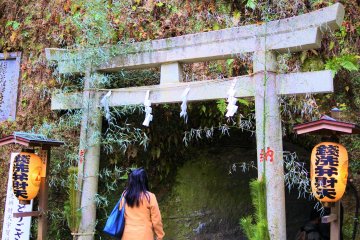
“Zeniarai Benzaiten Ugafuku Shrine” is a shrine in Kamakura famous for granting wealth. Minamotono Yoritomo, first shogun of the Kamakura period, founded the shrine after discovering spring water gushing from a rock following a dream in the year 1185.
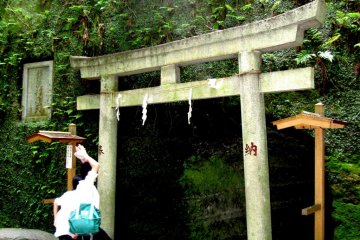
Forget the lottery—if you’re down to your last measly yen and you’re not so hot at predicting the stock market, bring a couple bills over to Kamakura's Zeniarai Benten.
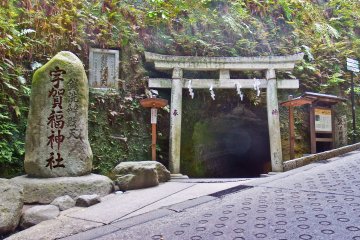
Come and visit this interesting shrine in Kamakura where you can double your money by washing it in holy water!

Taisen-kaku is a 100-year-old inn just seconds away from Hase Kanon Temple. The service they provide will leave you with a memorable experience of your time in Kamakura.
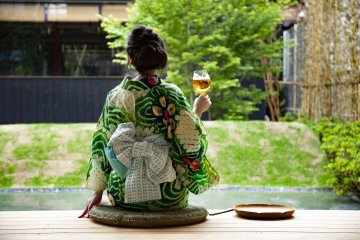
Kishi-ke is traditional, yet modern, Japanese-style inn that aims to connect guests with the present and help them achieve inner harmony through its peaceful design and cultural experiences.

Fujisawa is located close to such popular tourist destinations as Enoshima and makura. A traveler can get everything necessary for a comfortable rest in a room.

Discover the taste that Kamakura locals are in love with. New German's fluffy custard-filled sponge cakes are a dessert that is sure to impress. The caramel custard flavor is especially popular with visitors.

Taste Aratama's famous fried pork cutlet and fall in love with the fresh flavors. Tonkatsu isn't all that's on the menu. Be sure to try Aratama's other dishes like mozzarella menchi katsu and cream croquette.

Using animal-free products, brown rice, and locally sourced fresh vegetables, Ki to Toki creates masterful vegetarian meals that are not only delicious but a pleasure to look at. Try their set of 17 different dishes and fermented drinks with dessert and herbal tea or coffee after the meal.
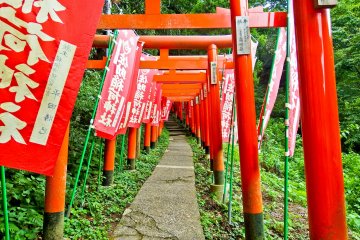
Sasuke Inari Shrine is a Shinto shrine in Kamakura and the site of the Hidden Village of Kamakura. It is located very near the Zeniarai Benzaiten Ugafuku Shrine. [Wikipedia]
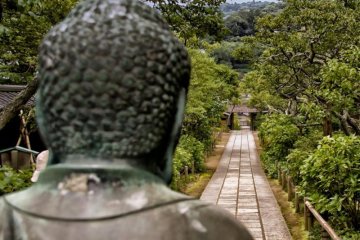
Tokeiji, a Rinzai-sect temple of Zen Buddhism, is a branch temple of nearby Engakuji, which is a short 5-minute walk away. This important temple/nunnery was founded in 1285 by the wife of regent Hojo Tokimune as a sanctuary for women who were abused by their husbands. In a time when women could not legally divorce, Tokeiji offered them a three-year training program in return for an official divorce. The temple’s right to issue divorces was revoked in the early 1870s and its time as a nunnery ended in 1902. Up until 1902, men were strictly forbidden from entering the premises. Today, all visitors are welcome, and the temple is known for its beautiful flower gardens from summertime hydrangeas to wintertime plum blossoms. The relatively small complex features multiple structures, including an entrance gate, a bell tower, tea houses, a treasure house, and a main hall. The treasure house holds Buddhist artifacts, as well as lacquer work from past nuns; and the main hall enshrines a seated statue of Shaka Nyorai, the principal image of the temple. Join the temple for early morning zazen meditation, which is held every Sunday.
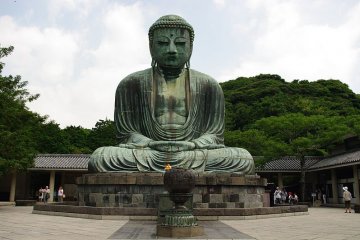
Kotoku-in is the more common name for Taiizan Kotoku-in Shojosen-ji in Kamakura, Kanagawa Prefecture. This Jodo-shu Buddhist temple is known for its Daibutsu, or great Buddha, which is one of the most famous icons of Japan. The statue, commonly known as the Kamakura Daibutsu (Big Buddha of Kamakura), is a colossal copper image of the Amitabha Buddha. The Buddha, which was declared a national treasure by the Japanese government, is about 11.3 meters high and weighs about 121 tons. The Kotoku-in belongs to the Jodo sect, a traditional Buddhist sect founded by the priest Honen (1133-1212) who was a follower of Amitabha. According to the Jodo sect's belief system, all people are equal and one only has to sing the "Nenbutsu" to receive the protection of Amitabha and to be reborn in one's "pure land".